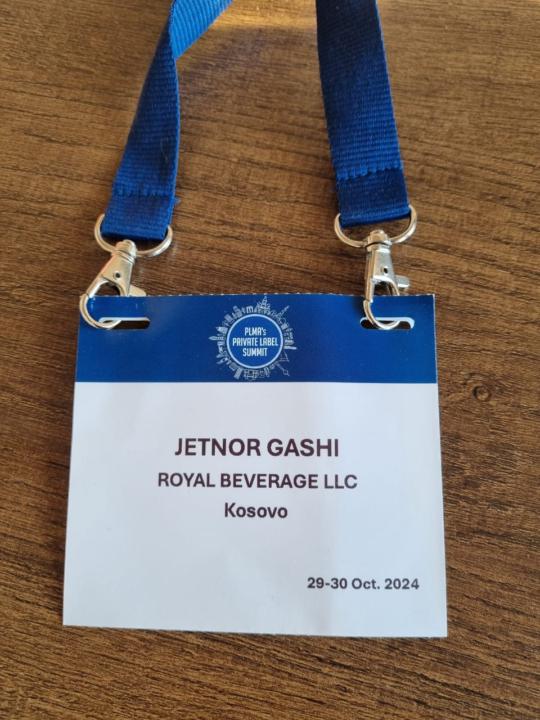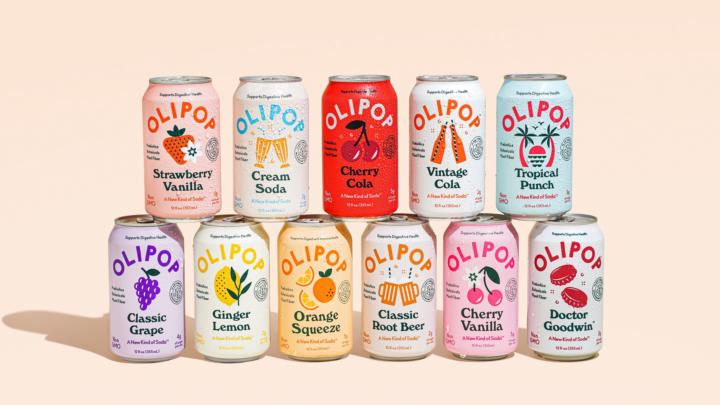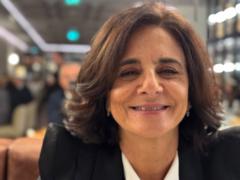Activity
Mon
Wed
Fri
Sun
Mar
Apr
May
Jun
Jul
Aug
Sep
Oct
Nov
Dec
Jan
Feb
What is this?
Less
More
Owned by Jetnor
Welcome to the Private Label Mastery Community, your go-to hub for mastering the art of private label branding, sourcing, and scaling.
Memberships
AIpreneurs (Free)
10.3k members • Free
Selling Online / Prime Mover
36k members • Free
Brotherhood Of Scent
8.6k members • Free
Whiskey & Rum Brotherhood
68 members • Free
16 contributions to The Private Label Community
Private Labels: The Rise to A-Brand Status – Insights from PLMA Milan
Attending the PLMA’s Annual Private Label Summit in Milan last year was an eye-opening experience. Over the course of two days, some of the biggest names in retail, design, and packaging gathered to discuss the evolving role of private labels. Among the key participants were representatives from Rossmann, Coop Italian Food, and leading design firms, all bringing valuable insights into how private labels are no longer just budget alternatives but real contenders in the branding space. The central theme of the event was "Transforming Private Labels into Powerful Brands", a discussion that resonated across panels and keynotes. One of the biggest takeaways? The industry now recognizes that private labels can compete with, and even surpass, traditional A-brands. Key Speakers & Insights - Michaela Jay (IGD, Insights Manager) – Shared best practices on how private labels can elevate themselves to brand status through strategic positioning. - Sandra Lorenz (Private Label Director, Rossmann) – Provided a retailer’s perspective on the evolution of private labels, especially in the German market. - Paolo Bonsignore (COO, Coop Italian Food) – Presented a revolutionary approach to private label branding in Italy, where these products are becoming consumer favorites. - Jens Sievert (Director of International Design & Branding, Daymon Design) – Led discussions on how human-centered design plays a crucial role in making private labels stand out, proving that branding and storytelling are just as important as product quality. Private Labels as A-Brands: The Game-Changers A key argument that emerged throughout the summit was how retail giants like Coop and Rossmann have successfully elevated their private label offerings into powerful, market-leading brands. Once perceived as lower-cost alternatives, these private labels now compete directly with well-established national brands, offering high-quality products, strong branding, and deep customer trust. Coop’s Revolutionary Private Label Strategy
0
0

Patrick Mahomes Enters the Game: How Throne Sport Coffee is Changing the RTD Beverage Industry
In May 2024, Kansas City Chiefs quarterback Patrick Mahomes teamed up with beverage industry veteran Michael Fedele to launch Throne Sport Coffee, a ready-to-drink (RTD) beverage designed for active individuals seeking a healthier caffeine alternative. This partnership combines Mahomes' commitment to peak performance with Fedele's extensive experience in the beverage sector. A Fusion of Athleticism and Industry Expertise Michael Fedele, known for his roles at Coca-Cola and as Vice President of Marketing for BodyArmor, recognized a market gap for a functional coffee beverage tailored to active lifestyles. Observing the prevalence of coffee consumption among athletes, Fedele envisioned a product that not only provided natural caffeine but also included additional health benefits. Mahomes, an avid coffee drinker himself, was immediately intrigued by the concept. Their collaboration led to the development of Throne Sport Coffee, aiming to offer a beverage that aligns with the nutritional needs of both professional athletes and health-conscious consumers. Innovative Coffee PLUS+ Formula Throne Sport Coffee distinguishes itself with its proprietary Coffee PLUS+ formula. Each 11-ounce can delivers 150mg of natural caffeine sourced from premium Arabica beans, complemented by 100% of the daily value of B vitamins, electrolytes like potassium and sodium, and branched-chain amino acids (BCAAs) such as leucine, isoleucine, and valine. This combination is designed to enhance energy, support metabolism, aid hydration, and promote muscle recovery. The beverage is available in flavors like Mocha Java, French Vanilla, Salted Caramel, Black, and the recently introduced Mint Mocha. Notably, the drinks are low in calories and sugar, catering to those mindful of their dietary intake. Market Reception and Expansion Plans Since its launch, Throne Sport Coffee has gained traction among consumers seeking functional beverages. The brand's association with Mahomes has undoubtedly amplified its visibility, especially during high-profile events like the Super Bowl. Initially available through select retailers and online platforms such as Amazon, the company has plans to expand its distribution network in 2025, aiming to reach a broader audience. The introduction of new flavors and strategic marketing efforts underscore Throne's commitment to innovation and meeting consumer demands.
Olipop Reaches $1.85 Billion Valuation as Prebiotic Soda Market Heats Up
Olipop, the prebiotic soda brand, has secured a $50 million Series C funding round, pushing its valuation to $1.85 billion. The funding round was led by Monogram Capital Partners, with participation from celebrity investors such as Camila Cabello, Priyanka Chopra Jonas, and Nick Jonas. A Rapid Rise in the Functional Beverage Market Founded in 2018 by Ben Goodwin and David Lester, Olipop has rapidly gained traction in the health-conscious beverage space. Its sodas, which contain prebiotic fibers to promote gut health, have resonated with consumers looking for alternatives to traditional soft drinks. The brand is now stocked in over 50,000 stores across the U.S. and reported profitability in early 2025. Olipop has seen strong investor interest in previous rounds as well. In 2021, the company raised $10 million in a Series A funding round, followed by a $30 million Series B in 2022, which included investors like Gwyneth Paltrow and the founders of RXBAR. The Big Players Are Watching Olipop’s rapid rise hasn’t gone unnoticed by major beverage companies. Coca-Cola, for instance, recently introduced its own prebiotic soda line, Simply Pop, signaling its intent to compete in the growing functional beverage category. While Coca-Cola hasn’t directly commented on Olipop’s latest funding round, industry experts believe the beverage giant is closely monitoring the brand’s trajectory. With Olipop proving that consumers are willing to pay a premium for health-focused sodas, the question remains: Will the major soft drink brands continue to innovate in the prebiotic space, or will they eventually seek to acquire brands like Olipop?
0
0

Private Label from budget to premium products
When I started my career with private label products were always cheaper with worse quality. Consumer knows that choosing this product can save money at the expense of quality. Producer or store chains could raise up your marge because marketing was unnecessary but it was a many, many times ago. Actually, I am old man :) Nowadays, change almost everything. Private label products don't mean worse products and sometimes need a serious marketing campaign. It's because market is full with a many of competitors. Example from Poland - one of the supermarket chain's W5 has become one of the most popular product among a wide range of similar products, including big brands. In your experience, what categories have seen the most dramatic transformation from "budget private label" to "premium private label," and what factors drove this evolution most successfully?
0 likes • Feb '25
Thanks for sharing your perspective! Since I’m in the beverage industry, I’ve been closely following this space for years now, and I think we’re seeing a major shift. Private label is no longer just about being the cheaper alternative—it has evolved into a serious competitor to big brands, even influencing their strategies. Take the functional beverage market, for example. Brands like Poppi and Olipop have found a niche by catering to Gen Z consumers who are increasingly health-conscious and shifting away from alcohol. This generation is looking for functional benefits, clean ingredients, and better-for-you alternatives, which has forced even giants like Coca-Cola to pay attention. I believe this trend is only going to grow stronger. The real game-changer has been the ability of private labels to differentiate through quality, innovation, and strong branding rather than just price. What used to be a budget play has now become a strategic move, and in some cases, private labels are leading the charge in consumer trends. Would love to hear your thoughts on how this shift is playing out in different product categories beyond beverages!
1-10 of 16



